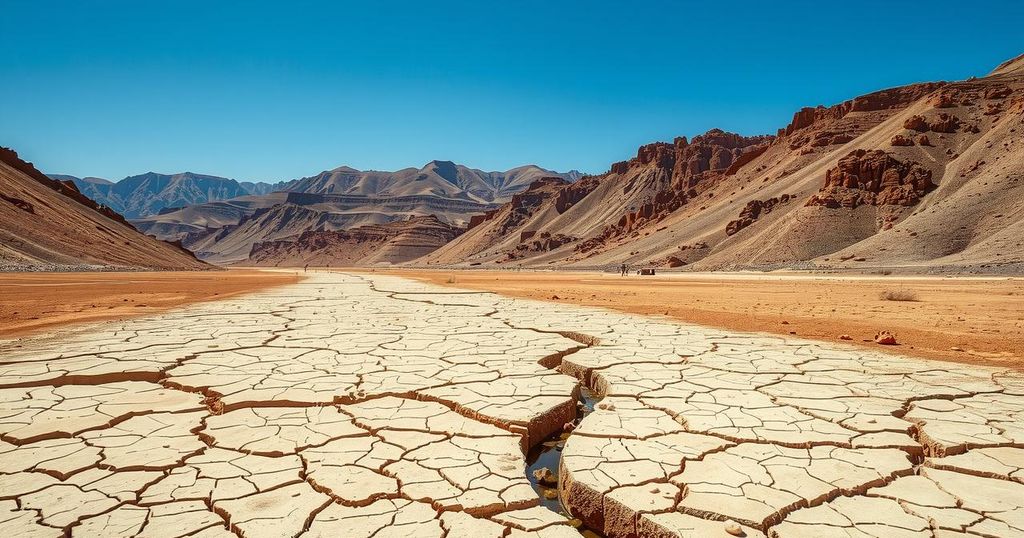Climate change
AFRICA, AMALGAMATED UNION OF PUBLIC CORPORATIONS CIVIL SERVICE TECHNICAL AND RECREATIONAL SERVICE EMPLOYEES, AU, AUPCTRE, CLIMATE CHANGE, COMRADE SIKIRU WAHEED, EDO, ENUGU, ENVIROMENTAL_ISSUES, FLORENCE IFEANYI - ANEKE, FOOD SECURITY, KANO STATES, NEW LIFE COMMUNITY CARE INITIATIVE, NIGERIA, OYO, PHILIP JAKPOR, SERDEC, SI, WATER MANAGEMENT
Isaac Bennett
0 Comments
Addressing the Water Crisis in Nigeria: Funding and Responsibility
A coalition of water justice groups has reported that Nigeria’s water scarcity is primarily due to inadequate funding of water utilities. Their findings, detailed in the report “Dry Taps: A Damning Verdict on the State of Water Utilities in Nigeria,” emphasize the urgent need for government action across states to ensure clean and affordable water access for citizens, particularly in rural areas.
Ahead of World Water Day 2025, a coalition of water justice organizations has attributed Nigeria’s persistent water scarcity primarily to inadequate funding of water utilities. This coalition, through a report titled “Dry Taps: A Damning Verdict on the State of Water Utilities in Nigeria,” highlighted the dire situation across various states including Enugu, Lagos, Oyo, Kogi, Edo, and Kano, urging the government to improve funding in this sector.
The investigative findings, compiled by seven organizations including the New Life Community Care Initiative and the Environmental Defenders Network, delve into the underlying causes of Nigeria’s water crisis. Florence Ifeanyi-Aneke, Executive Director of NELCCI, remarked that the report aims to prompt state authorities to fulfill their duty of ensuring access to clean and affordable water for citizens. “What we have found is very disturbing and must not be allowed to continue if we say we are a serious nation,” she asserted.
Philip Jakpor, Executive Director of RDI, emphasized the role of government neglect in the water sector, stating, “Now we can lay the blame for the parlous state of water in Nigeria exactly where it belongs. The governments at state and the federal level have consistently neglected their responsibility of sustainable funding of water to pave way for privatisation of the utilities.”
AUPCTRE General Secretary, Comrade Sikiru Waheed, noted that while the study focused on six states, it encompasses diverse regions of Nigeria, effectively representing nationwide water accessibility issues. The research revealed that the situation is particularly dire in rural areas, where approximately 70% of the population relies on natural water sources and private vendors. In Enugu, for instance, substantial government funds intended for improving water infrastructure have yielded minimal results.
Despite some ongoing projects aimed at enhancing water supply, the report indicates that many residents remain dependent on boreholes and private vendors, exposing them to high costs and health risks from unsafe water sources. The coalition stresses that urgent reforms are necessary to address these critical challenges in Nigeria’s water sector.
The coalition of water justice organizations firmly establishes that insufficient funding is a primary factor contributing to Nigeria’s ongoing water scarcity crisis. The report underscores the responsibilities of both state and federal governments in ensuring accessible and safe water for all citizens, particularly highlighting the plight of rural communities. As various initiatives are undertaken, it remains imperative to prioritize sustainable solutions and significantly enhance the overall management of water resources in Nigeria.
Original Source: dailypost.ng




Post Comment